Related Research Articles

The Cavendish Laboratory is the Department of Physics at the University of Cambridge, and is part of the School of Physical Sciences. The laboratory was opened in 1874 on the New Museums Site as a laboratory for experimental physics and is named after the British chemist and physicist Henry Cavendish. The laboratory has had a huge influence on research in the disciplines of physics and biology.
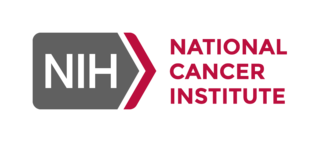
The National Cancer Institute (NCI) coordinates the United States National Cancer Program and is part of the National Institutes of Health (NIH), which is one of eleven agencies that are part of the U.S. Department of Health and Human Services. The NCI conducts and supports research, training, health information dissemination, and other activities related to the causes, prevention, diagnosis, and treatment of cancer; the supportive care of cancer patients and their families; and cancer survivorship.

Sir Austin Bradford Hill was an English epidemiologist and statistician, pioneered the randomised clinical trial and, together with Richard Doll, demonstrated the connection between cigarette smoking and lung cancer. Hill is widely known for pioneering the "Bradford Hill" criteria for determining a causal association.

Sir William Richard Shaboe Doll was a British physician who became an epidemiologist in the mid-20th century and made important contributions to that discipline. He was a pioneer in research linking smoking to health problems. With Ernst Wynder, Bradford Hill and Evarts Graham, he was credited with being the first to prove that smoking increased the risk of lung cancer and heart disease.

Sir David John Spiegelhalter is a British statistician and Winton Professor of the Public Understanding of Risk in the Statistical Laboratory at the University of Cambridge and a Fellow of Churchill College, Cambridge. Spiegelhalter is an ISI highly cited researcher.

Norman Edward Breslow was an American statistician and medical researcher. At the time of his death, he was Professor (Emeritus) of Biostatistics in the School of Public Health, of the University of Washington. He is co-author or author of hundreds of published works during 1967 to 2015.
Sylvia Therese Richardson is a French/British Bayesian statistician and is currently Professor of Biostatistics and Director of the MRC Biostatistics Unit at the University of Cambridge. In 2021 she became the president of the Royal Statistical Society for the 2021-22 year.
David George Clayton, is a British statistician and epidemiologist. He is titular Professor of Biostatistics in the University of Cambridge and Wellcome Trust and Juvenile Diabetes Research Foundation Principal Research Fellow in the Diabetes and Inflammation Laboratory, where he chairs the statistics group. Clayton is an ISI highly cited researcher placing him in the top 250 most cited scientists in the mathematics world over the last 20 years.

Peter Boyle, FRSE FFPH FRCPS(Glas) FRCP(Edin) FMedSci, is a British epidemiologist. He has done research on globalisation of cancer, where he has shown the dramatic increase of cancer in low- and medium income countries.
Philippe Autier is a Belgian epidemiologist. He is doing research on cancer, where he contributed to the understanding of the role of UV exposure in cancer development.
Carlo La Vecchia is an Italian epidemiologist. He is doing research on chronic diseases, where he contributed to the understanding of the risks related to diet, tobacco, oral contraceptive use and occupational or environmental exposure to toxic substances in cancer and other chronic diseases development.
Sir Bruce Anthony John Ponder FMedSci FRS is an English geneticist and cancer researcher. He is Emeritus Professor of Oncology at the University of Cambridge and former director of the Cancer Research UK Cambridge Institute.

Ronald Alfred Laskey is a British cell biologist and cancer researcher.
Lester Breslow was an American physician who promoted public health. Breslow's career had a significant impact. He is credited with pioneering chronic disease prevention and health behavior intervention. His work with the Human Population Laboratory in the Alameda County Study established the connection between mortality and lifestyle issues like exercise, diet, sleep, smoking, and alcohol. He has been called "Mr. Public Health".
Marvin Zelen was Professor Emeritus of Biostatistics in the Department of Biostatistics at the Harvard T.H. Chan School of Public Health (HSPH), and Lemuel Shattuck Research Professor of Statistical Science. During the 1980s, Zelen chaired HSPH's Department of Biostatistics. Among colleagues in the field of statistics, he was widely known as a leader who shaped the discipline of biostatistics. He "transformed clinical trial research into a statistically sophisticated branch of medical research."
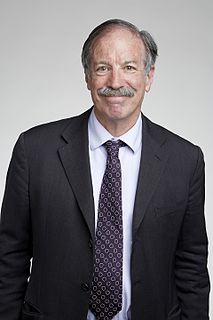
Jack Martin Cuzick is an American-born British academic, director of the Wolfson Institute of Preventive Medicine in London and head of the Centre for Cancer Prevention. He is the John Snow Professor of Epidemiology at the Wolfson Institute, Queen Mary University of London.
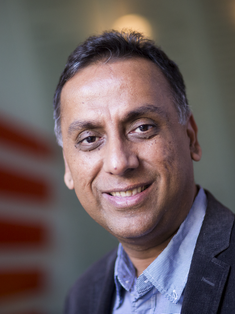
Nilanjan Chatterjee is a Bloomberg Distinguished Professor of Biostatistics and Genetic Epidemiology at Johns Hopkins University, with appointments in the Department of Biostatistics in the Bloomberg School of Public Health and in the Department of Oncology in the Sidney Kimmel Comprehensive Cancer Center in the Johns Hopkins School of Medicine. He was formerly the chief of the Biostatistics Branch of the National Cancer Institute's Division of Cancer Epidemiology and Genetics.
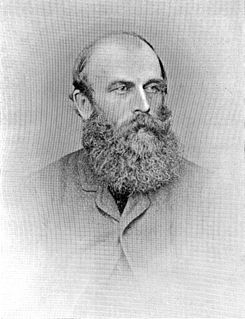
Strangeways Research Laboratory is a research institution in Cambridge, United Kingdom. It was founded by Thomas Strangeways in 1905 as the Cambridge Research Hospital and acquired its current name in 1928. Organised as an independent charity, it was historically funded primarily by the Medical Research Council and is currently managed by the University of Cambridge, also its sole trustee. Formerly a site of research on rheumatic arthritis and connective tissue disorders, it has since 1997 focused on the study of genetic epidemiology.
Professor Thomas Wilson Meade, also known as Tom, is a British epidemiologist.
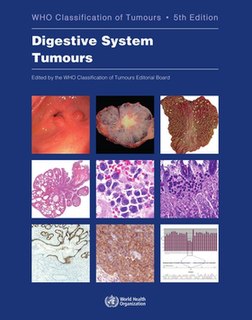
The WHO Classification of Tumours, more commonly known as the WHO Blue Books, is a series of books that classify tumours. They are compiled by expert consensus and published by the WHO's International Agency for Research on Cancer (IARC). They appear in print and online in a series of 15 books, each of which focuses on a major tumour group and defines the cause, mechanism, signs and symptoms, basic structure, diagnosis, epidemiology and outcomes of up to 300 types of tumours.
References
- 1 2 3 4 5 6 "Prof Nicholas Day, CBE, FRS". Debrett's People of Today . Archived from the original on 23 March 2012. Retrieved 12 June 2010.
- ↑ "Directors of Strangeways Research Laboratory". Strangeways Research Laboratory. Retrieved 12 June 2010.
- ↑ "New Years Honours 2000: DBEs to CBEs". BBC News. 30 December 2000. Retrieved 12 June 2010.